CarEdge saved me over 4,500 dollars on a brand new Honda Pilot. I can't say thank you enough.
Price intelligence
Find a wide range of vehicle listings with market insights on new and used listings near you.


Help us personalize your CarEdge experience — it only takes a second.
Your answers help us personalize your CarEdge journey — we’ll follow up with tips and next steps that match your buying timeline.

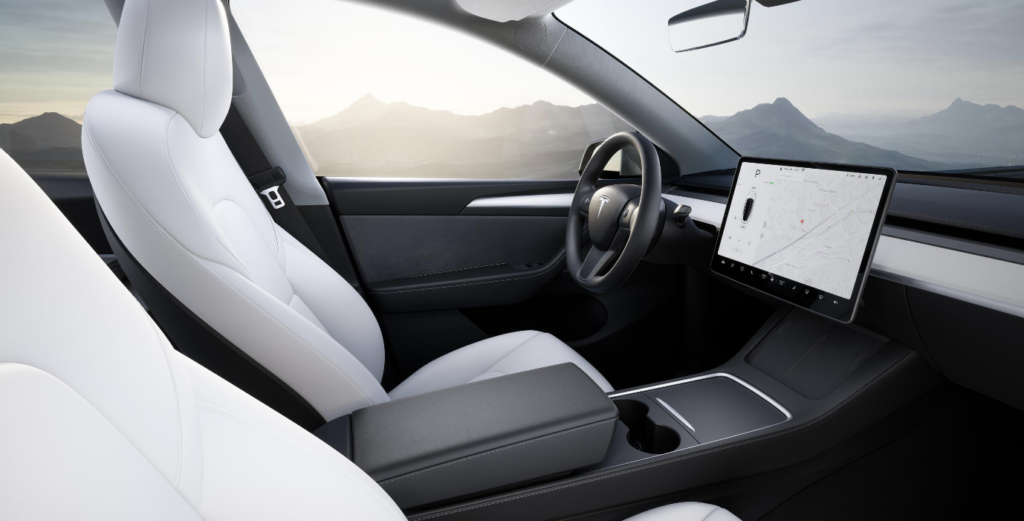
One third of American drivers are seriously considering going electric as generous tax credits, fuel savings and reduced emissions lure the masses towards EVs. My own household made the switch in early 2022, and we’re never going back to ICE. In hopes of adding clarity to the current EV market, we’ve created this resource to share what we think are the BEST electric cars, trucks and SUVs in 2023. We’ve also shared what we think are the worst.
These models are stand-outs for their value. Range, charging speed and available features are given priority over performance in our analysis.
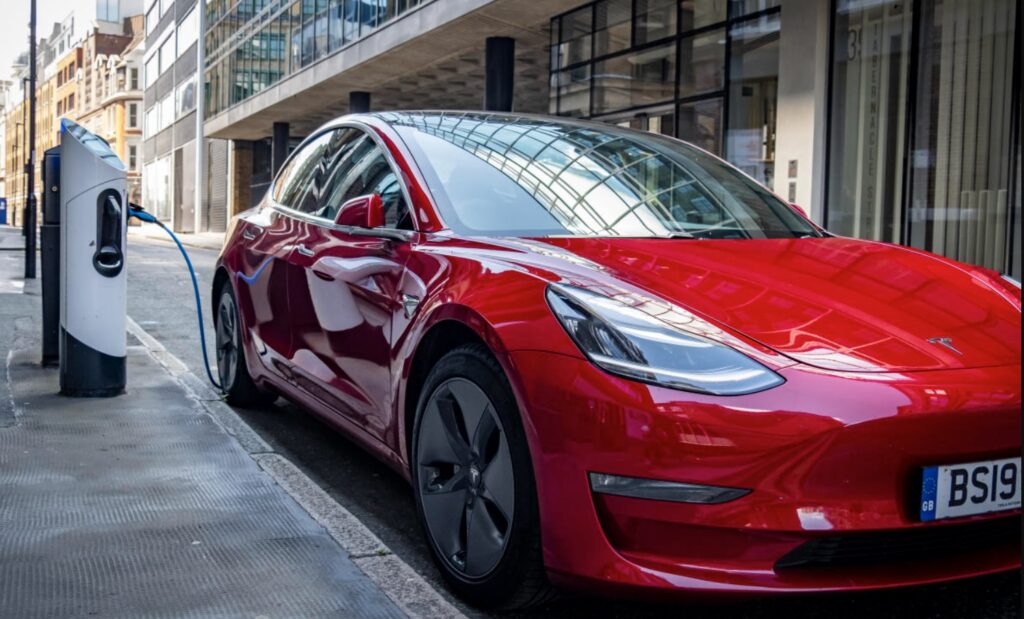
Price: $41,990
Range: 272 miles
Fast charging (adding 200 miles in 20-30 minutes)
Why it’s great: The Tesla Supercharger network makes cross country travel hassle-free. Tesla charges are very reliable, and with 1,500 locations in all 50 states, finding one is rarely an issue.
Plus, the price you see on Tesla’s online configurator is the price you pay (before taxes and required fees, of course). While legacy automakers continue to struggle with out-of-control dealer markups, Tesla and other direct-to-consumer EV makers have the upperhand on pricing.
See pre-owned Tesla inventory near you, or configure a new Tesla at Tesla.com
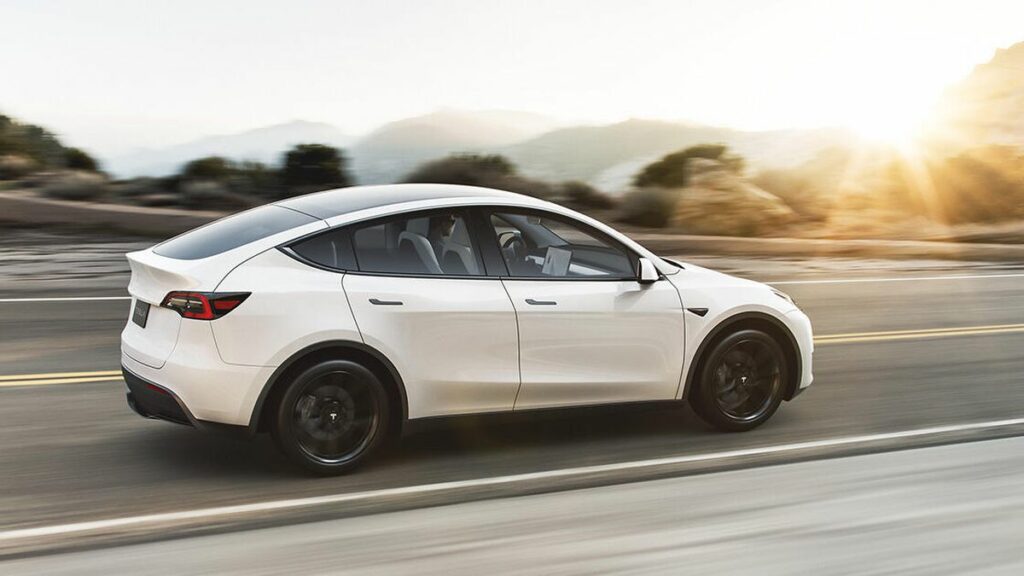
Price: $52,990+
Range: 330 miles
Fast charging (adding 200 miles in 20-30 minutes)
Why it’s great: The Model Y is the larger, more family-oriented version of the Model 3. Last year, the Model Y overtook the 3 as the best-selling EV in America. Although it is the most expensive model on this list, if you can afford it, the ease of public charging, great range, spacious interior and exhilarating performance all make this the sweet spot for many buyers. Plus, there are no dealer markups.
But wait, there’s more. Both the Model Y and Model 3 are available for delivery soon after placing an order. Tesla wait times are between one and three months as of late 2022. That’s about as good as it gets in today’s EV market.
Should you ever decide to sell, both of these Teslas have amazing resale value.
See pre-owned Tesla inventory near you, or configure a new Tesla at Tesla.com
Check out this resource: The Best Electric Vehicles Under $50,000
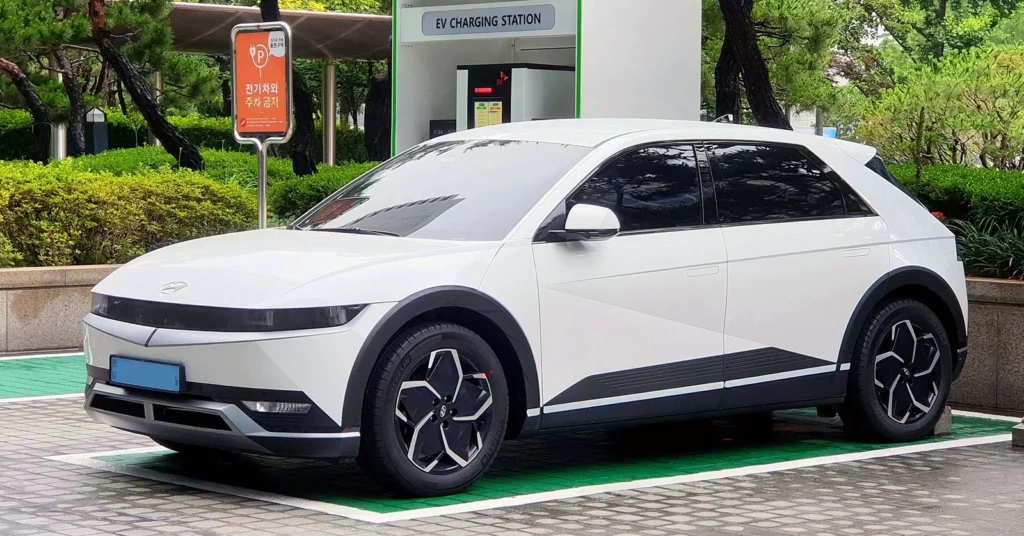
Price: $46,250 (dealer markups are common but negotiable)
Range: 303 miles
Fast charging: Add 200 miles of range in 20 minutes
Why it’s great: The 2023 IONIQ 5, Kia EV6, and Genesis GV60 are the first models powered by Hyundai Motor Group’s Electric Global Modular Platform. This is next-gen 800-Volt architecture at (relatively) affordable prices, and that’s awesome.
Plus, the IONIQ 5 is spacious, and looks really cool. Sadly, Hyundai has had a very difficult time scaling up production due to supply chain constraints, so expect to either wait for at least six months, or battle outrageous dealer markups to get your hands on a rare allocation.
I love my IONIQ 5. Here’s a review of my ownership experience so far.
See Hyundai IONIQ 5 inventory near you.
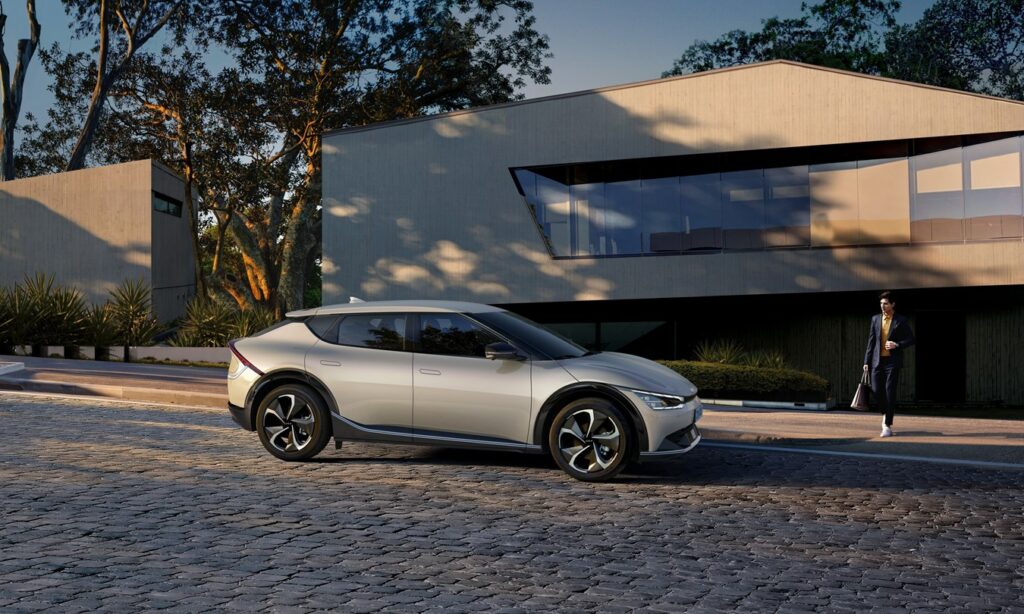
Price: $49,795 (dealer markups are common but negotiable)
Range: 310 miles
Fast charging: Add 200 miles of range in 20 minutes
Why it’s great: Kia’s version of the IONIQ 5 looks completely different, with very similar specs. That’s because both models share the e-GMP platform with great range and even better charging.
The 2023 EV6 has slightly more availability than the IONIQ 5 right now. For the 2023 model year, Kia decided to drop the “Light” base model, kicking the entry-level price all the way up to nearly $50,000.
As always, I recommend everyone take a test drive before dismissing EVs. They’re quiet, efficient and fun. The EV6 would be a great one to take for a spin.
See Kia EV6 inventory near you.
Here’s every electric truck’s pricing and range.
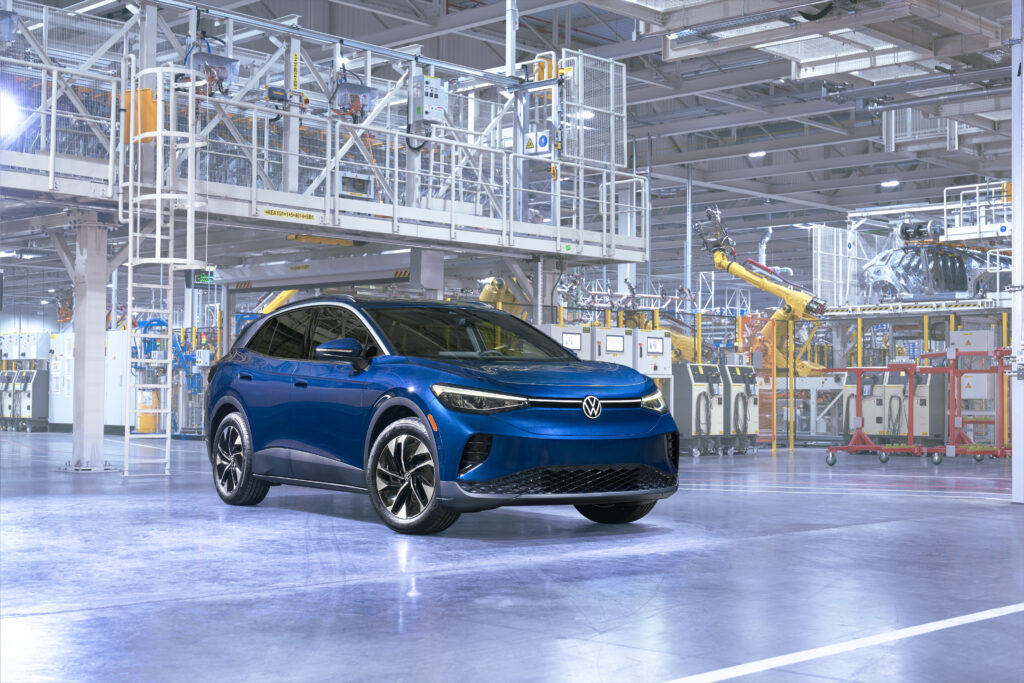
Price: $42,495
Range: 275 miles
Fast charging: Add 190 miles of range in 28 minutes
Why it’s great: The VW ID.4 is now made in America at Volswagen’s Chattanooga, Tennessee factory. That means it will qualify for the revised EV tax credit (up to $7,500), as long as your VIN confirms that it is an American-made ID.4. I was impressed during my test drive of the ID.4. It rides like a luxury crossover, and has plenty of acceleration when you need it. However, it’s definitely the least sporty of this bunch, but it’s also the least expensive.
Now made in America, there is also a new cheaper option starting at $37,495. However, with public charging infrastructure slow to build out, the expected 208 miles of range is not enough for us to confidently recommend it to anyone but those who expect to stick around urban areas 95% of the time. The ID.4 Pro, on the other hand, is exceptional value with the EV tax credit.
See Volkswagen ID.4 inventory near you.
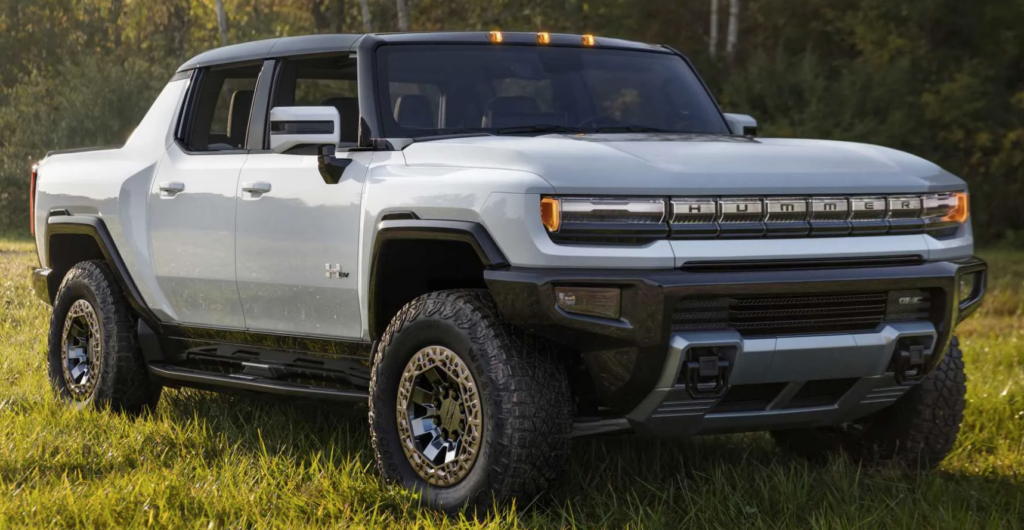
Price: $90,000-120,000 (before markups of up to $100,000)
Range: 329 miles
Why it’s horrible: Where do we start? The Hummer EV costs $100 to charge (because it has a MASSIVE 212 kilowatt-hour battery pack), weighs 9000 pounds (that’s 2x the weight of the typical F-150), and is horrible for the environment. If you’re looking to go green with your EV purchase, this isn’t it. It’s also very expensive, but that’s less surprising these days.
At auction, we’ve seen many Hummer EVs selling for over $200,000. No thanks.
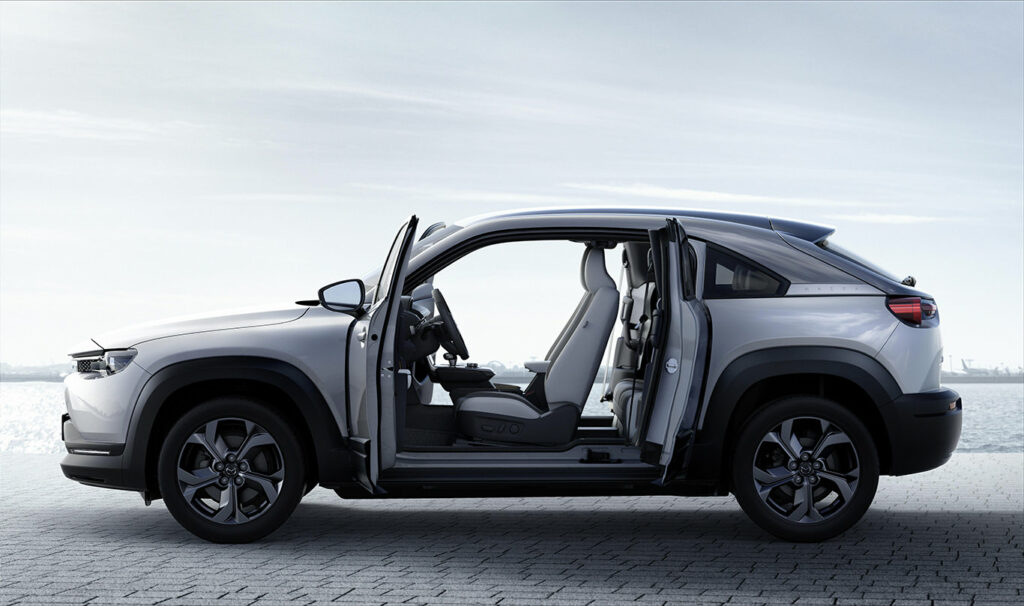
Price: $34,000
Range: 100 miles
Why it’s horrible: If you’re considering the Mazda MX-30, send me an email at [email protected]. I’d like to talk you out of it. I have nothing against Mazda as a brand (they make some awesome cars), but I am very against anyone buying an electric car with just 100 miles of range in 2022. Sure, maybe it’s just for around town. Have you thought about resale value? With barely 100 miles on a charge and slow charge times of around one hour, I’m afraid Mazda’s first EV won’t be worth its scrap metal value in a decade.
Other options to consider at this price point? The Nissan LEAF, base Volkswagen ID.4, Chevrolet Bolt, and soon-to-come Chevrolet Equinox EV are all far more capable for under $40,000.
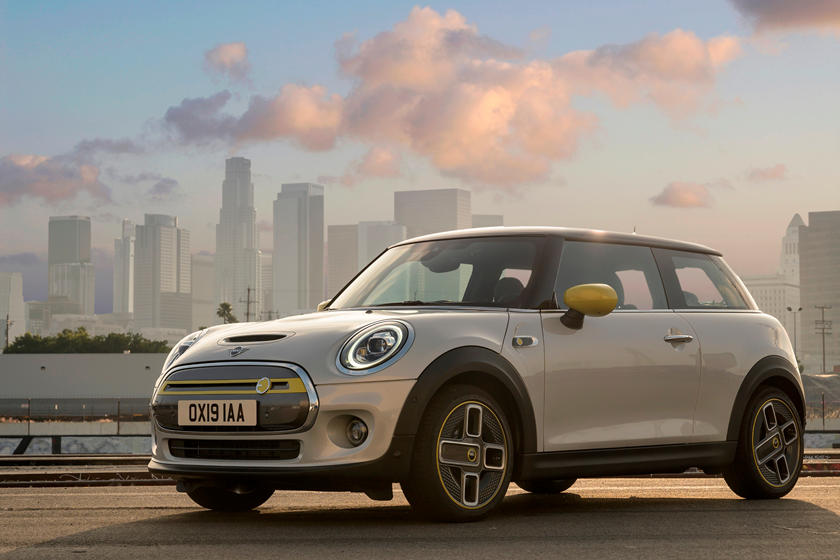
Price: $34,000
Range: 110 miles
Why it’s horrible: I sure hope CarEdge’s own Ray Shefska forgives me for bashing the electric MINI, but with 110 miles of range and slow charging, I don’t see a single reason why anyone should consider this EV. It’s one of the last ‘compliance cars’ in the EV market.
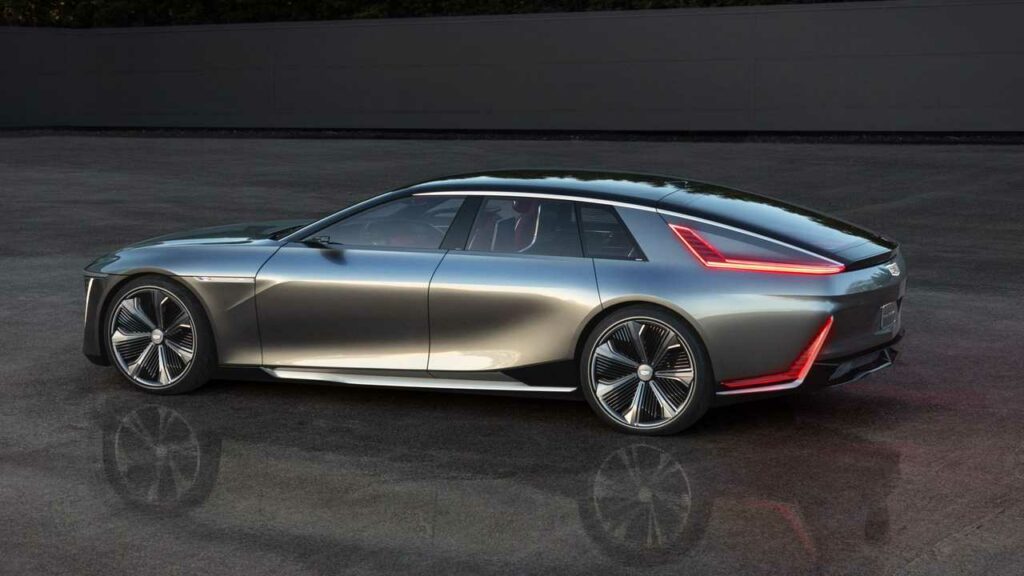
Price: $300,000+ (yes, count those zeroes)
Range: 300+ miles
Why it’s horrible: Would you pay Rolls Royce money for a Cadillacl? GM seems to think you would. I’m all for going all-out on EV design and innovation, but when Cadillacs cost more than houses, I can’t help but shutter. But hey, it will be hand-built.

The best EVs under $50,000 are more capable than ever before. But that doesn’t mean that they’re equally suited for the diverse needs of today’s drivers. Whether you’re hauling a family or looking for your next ridesharing car, these are the best EVs under $50k that are available now.
To qualify for federal EV incentives, ensure you purchase a Tennessee-built VIN.

Price: $37,495 – $53,995
Range: 208 – 293 miles
Charging Speed: 130 kilowatts (standard) to 170 kilowatts (Pro); Add 200 miles of range in 28 minutes

Tax Credit: The U.S.-built ID.4 qualifies for at least half of the new EV tax credit. Make sure yours is built at the Chattanooga, Tennessee factory! See full details here.
Did You Know? The 2024 VW ID.4 includes three years of free 30-minute charging sessions at Electrify America. For those who travel often, this incentive could be worth hundreds of dollars.
Build and price your own ID.4 at vw.com
After a price drop, the cheapest Tesla is available for thousands less. No dealers, no markups!

Price (rear-wheel drive): $42,380 (including destination charges)
Range: 272 miles
Charging Speed: 170 kilowatt max (adds 200 miles in 30 minutes of charging)
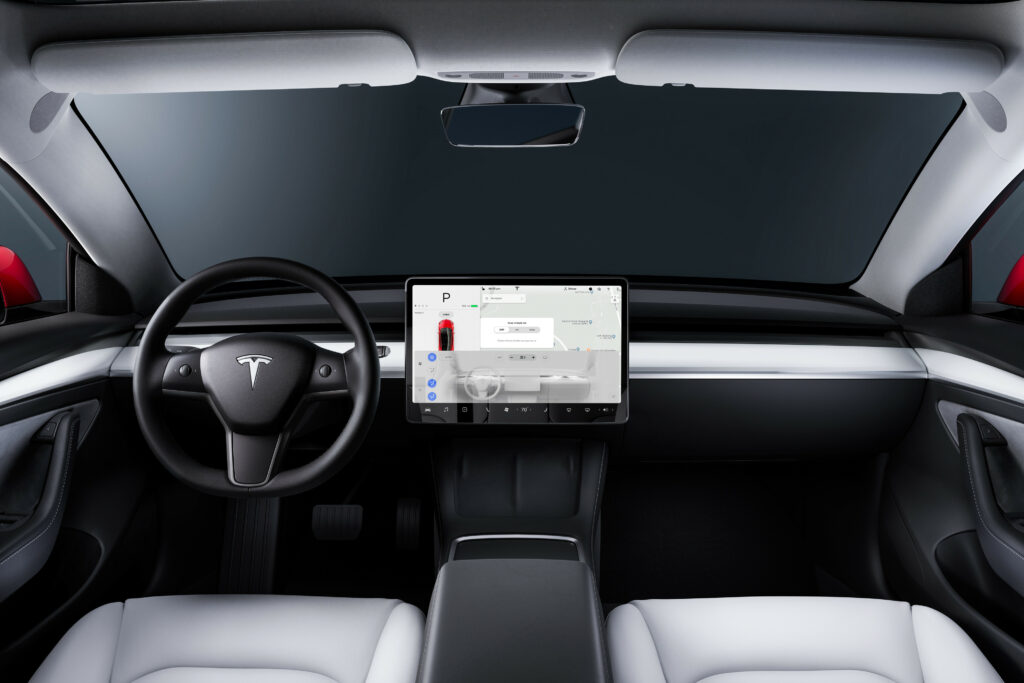
Federal Tax Credit: In 2024, the rear-wheel drive and all-wheel drive variants of the Tesla Model 3 have again lost the federal EV tax credit. This time, it’s not due to high sales, but because of battery sourcing.
Did You Know? Used Tesla prices have fallen dramatically since price cuts for new Tesla models were announced. See the latest used Tesla price forecast here.
Build and price the Model 3 at Tesla.com
As long as your Bolt has the new battery post-recall, the Bolt is by far the most affordable electric option available. But it’s not for road trips with the family.
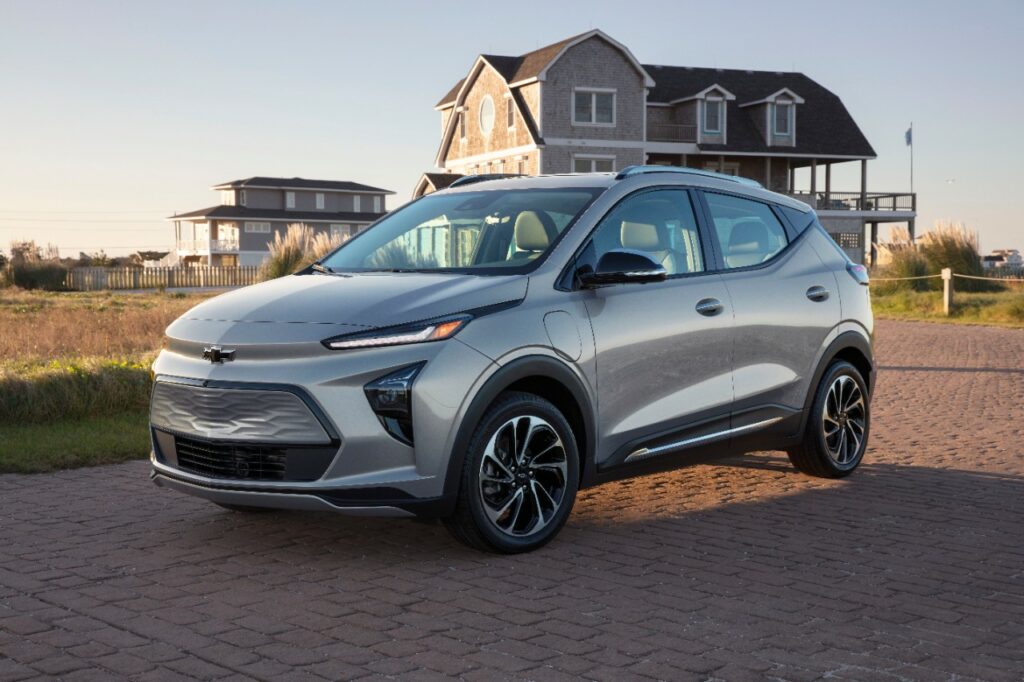
Price: $26,595 – $38,995
Range: 247 to 259 miles
Charging Speed: 55 kilowatt max (adds 200 miles in one hour of charging)

Federal Tax Credit: In 2024, the Bolt again qualifies for federal EV incentives. See full details here.
Did You Know? The Bolt has great range, but charges slowly. We think this is a great budget option for around town, but not for cross-country road trips.
Build and price your own Bolt EV or EUV at chevrolet.com
The new IONIQ 5 may have stolen the show, but the Kona EV is thousands of dollars cheaper. It’s one of the best EV values well under $50k. If you take frequent road trips, the Kona’s slow charging could be a deal breaker.

Price: $33,550 – $41,550
Range: 258 miles
Charging Speed: 100 kilowatt max (180 miles added in 47 minutes)

Federal Tax Credit: In 2022, the new revisions to the EV tax credit took away this incentive from the Kona EV. See full details here. State incentives may apply.
Did You Know? The all-new Hyundai IONIQ 5 has stolen the show with more range, MUCH faster charging, and better looks. Although MSRP starts closer to $45,000, dealer markups make it hard to find one under $50,000. More on that below.
Build and price your own Kona EV at hyundaiusa.com
Don’t like the looks of the Kona EV? The Niro is the same vehicle on the inside. Note that the Niro and Kona EVs are based on older EV powertrains, and charge quite slowly. Go for the Kia EV6 or IONIQ 5 for faster charging.

Price: From $40,875 with destination fees
Range: 253 miles
Charging Speed: 100 kilowatt max at a DC fast charger (adds 177 miles of range in about 45 minutes)

Federal Tax Credit: The new revisions to the EV tax credit took away this incentive from the Niro EV. See full details here. State incentives may apply.
Did You Know? The 2024 model year introduces a plug-in hybrid version with 33 miles of all-electric range. This is a great option for frequent travelers, rural drivers, and those without a place to charge at home.
Build and price your own Niro EV or plug-in hybrid
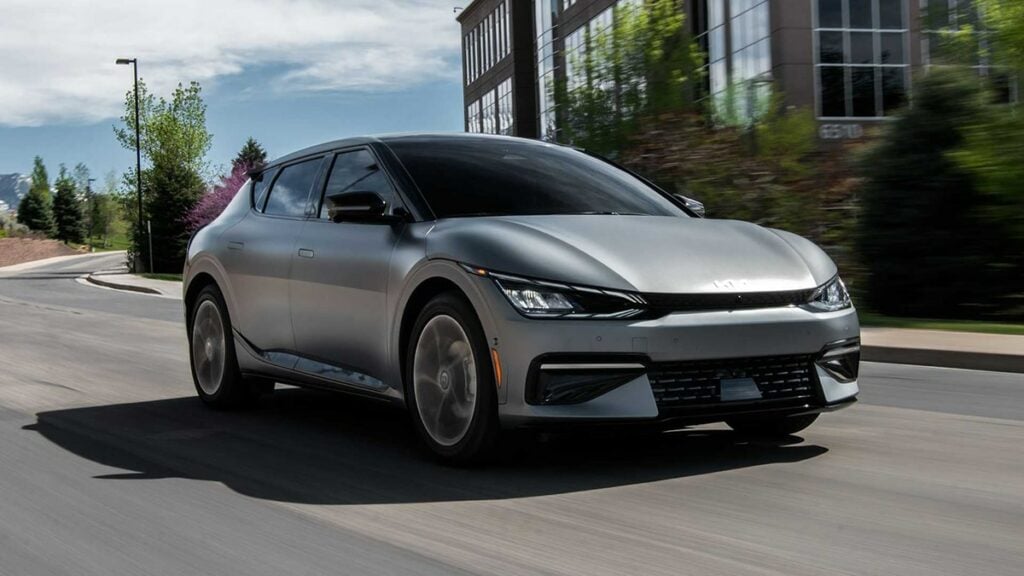
Price: $43,800 (Wind Rear-Wheel Drive)
Range: 310 miles
Charging Speed: 235 kilowatt max at a DC fast charger (adds 200 miles of range in about 20 minutes)
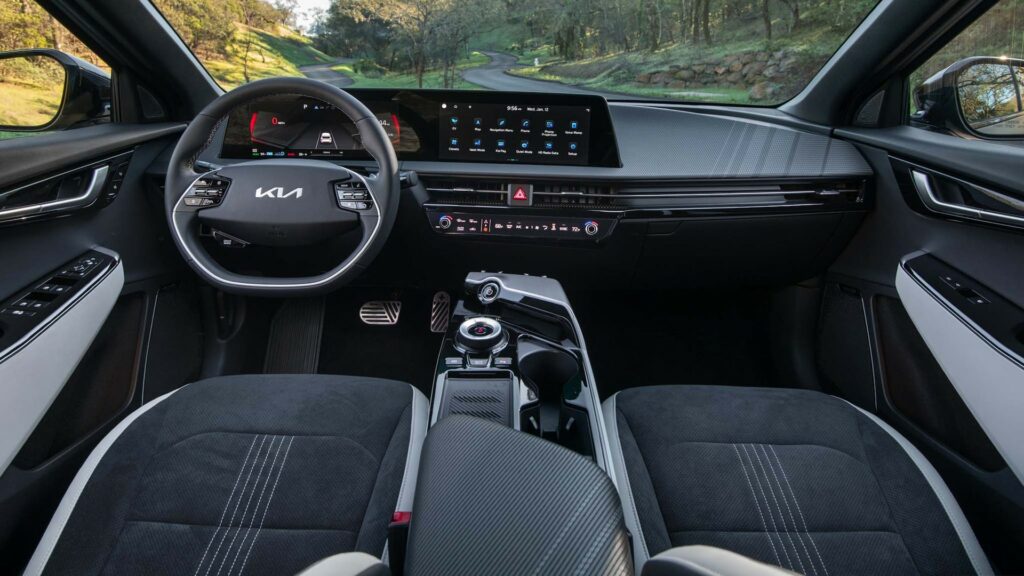
Federal Tax Credit: The new revisions to the EV tax credit took away this incentive from the EV6. See full details here. State incentives may apply.
Did You Know? The Kia EV6 is based on the same e-GMP electric platform as the Hyundai IONIQ 5. If the looks of the EV6 are too much for you, maybe the IONIQ 5 is up your alley. The EV6 comes with 1,000 kilowatt-hours of free charging at Electrify America. That’s about 15 charging sessions from 10% to 80%.
Build and price your own EV6 at kia.com
Despite winning so many awards in 2022, Hyundai has struggled to sell the IONIQ 5 due to the loss of the federal tax credit. See the latest IONIQ 5 inventory in your area.

Price: From $43,785 (SE Standard Range). Gain more range from $45,000+.
Range: 220 miles (Standard Range) to 310 miles
Charging Speed: 235 kilowatt max at a DC fast charger (adds 200 miles of range in about 20 minutes)

Federal Tax Credit: The new revisions to the EV tax credit took away this incentive from the IONIQ 5. See full details here. State incentives may apply.
Did You Know? The IONIQ 5 and it’s sibling the Kia EV6 are by far the fastest-charging EVs under $50,000. The IONIQ 5 has two years of free charging at Electrify America.
Build and price your own IONIQ 5 and hyundaiusa.com
Last but certainly not least, the entry-level Mustang Mach-E starts under $50k. Finding one without a dealer markup is a challenge.
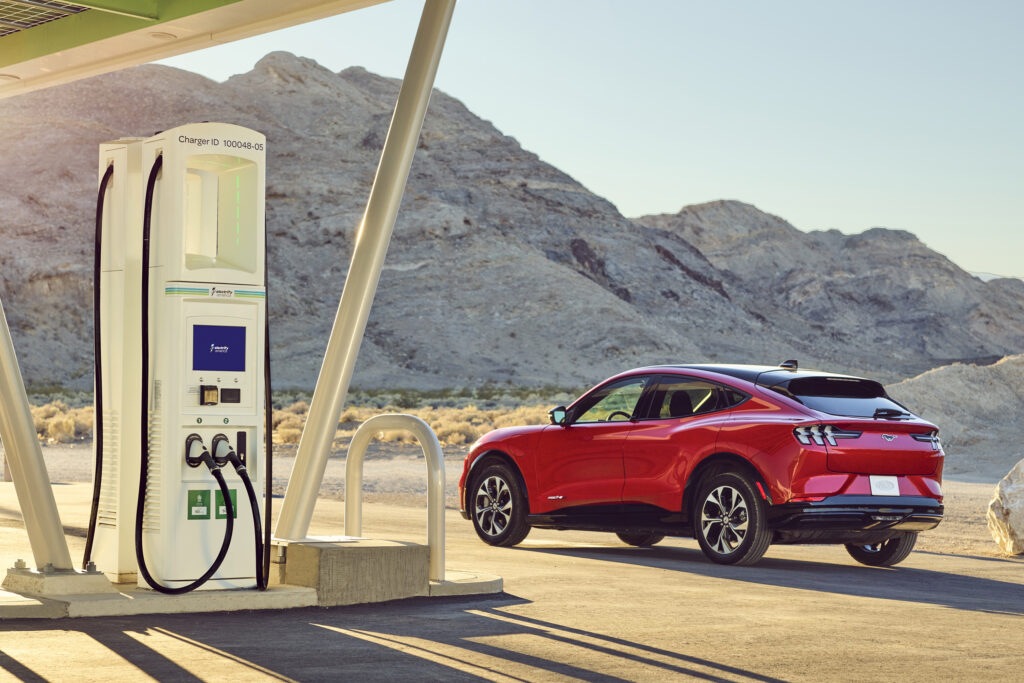
Price: Starting at $45,995
Range: 247 miles (Standard Range battery)
Charging Speed: 150 kilowatt max speeds (adds 170 miles of range in 35 minutes)

Federal Tax Credit: The Mustang Mach-E is made in Mexico, so it continues to qualify for at least half of the new EV tax credit. Qualification for the full credit depends on the battery supplier. See the latest from the federal government.
Did You Know? The Mustang Mach-E is one of the top-selling EVs in America, although it remains far behind Tesla.
Build and price your Mustang Mach-E at Ford.com
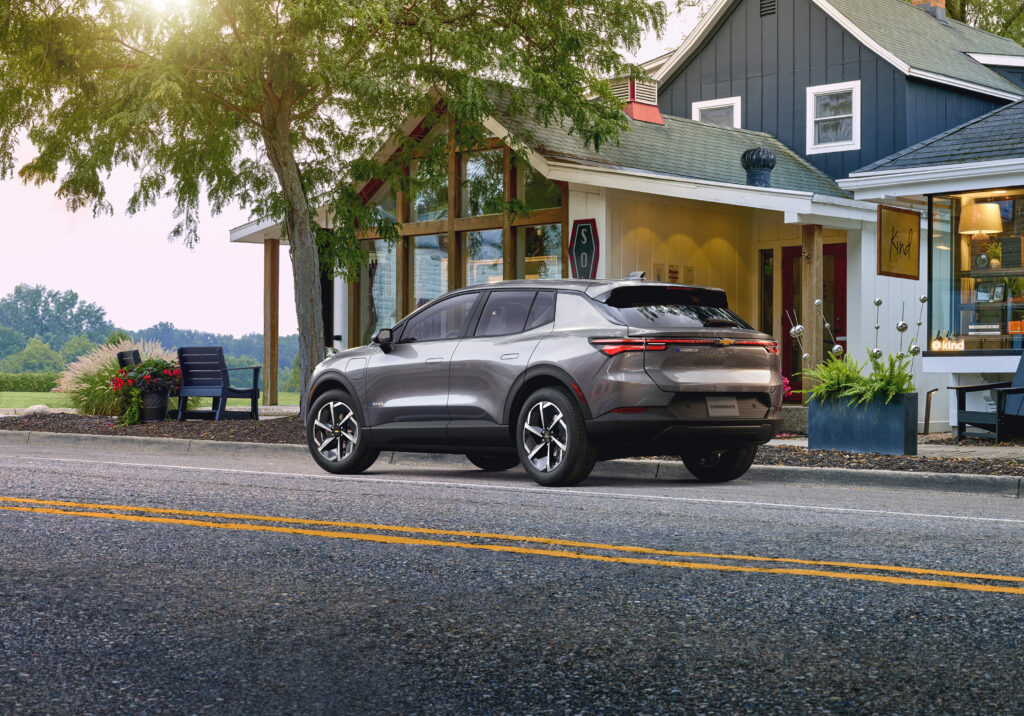
The Equinox EV was recently introduced, and GM still claims that it will start “around $30,000.” Even if the most preferred trim options run closer to $40,000, the Equinox EV looks to be a great deal.
Here are the standout specs GM has released:
See every detail released so far, from trim options to expected pricing
Don’t forget that both state and federal EV incentives may apply. Here’s our full breakdown of which models are likely to qualify. For the first time, a used EV tax credit is available, but very few models qualify due to the price cap. We’ve got the full details covered here.
Not sure which path is right for you? Head over to the CarEdge community forum to chat with auto experts with years of experience. I’m on the forum daily!

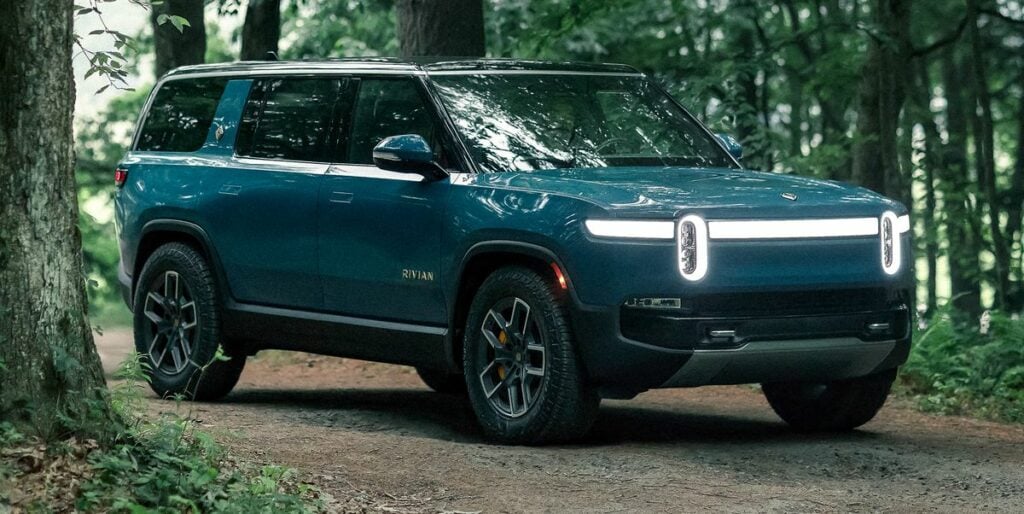
If you’re thinking about hauling the kids off to school with zero emissions, today’s EVs offer more range, faster charging and greater fuel savings. The best electric cars and SUVs for families are available in a wide range of options to meet your needs, and an even wider range of price points. These are the best electric crossovers and SUVs on sale in 2024.
If you need space for four, five, or maybe six people (plus those furry friends), these 3-row electric SUVs are built for you.

Reviewers absolutely LOVE the new Kia EV9. As the first mainstream 3-row electric SUV to hit the American market, the EV9 was highly anticipated. We can confirm that it has been worth the wait. Step inside this full-size SUV, and you’ll immediately note the spaciousness and luxurious feel of this premium-feeling Kia. This one is worth a test drive.
Price: $56,395 – $75,395
Range: 230 – 304 miles
Charging (public fast charger): can add 200 miles in 18 minutes
Passenger volume: 159 cubic feet (three rows, seats 6)
Cargo volume behind second row: 44 cubic feet
Total cargo volume: 82 cubic feet
NHTSA safety rating: Not Rated (5-Star Euro Rating)
See Kia EV9 new and used listings with local market data.

Rivian is just beginning to ramp up production and sales of the Rivian R1S, the full-size electric SUV companion to the R1T electric truck. The 2024 Rivian R1S is a blend of luxury and off-road capability. This 3-row EV is made in America, at a converted manufacturing facility in Normal, Illinois. We can only recommend this great vehicle if you live within a reasonable distance of one of Rivian’s service centers. If you end up needing service, you don’t want to pay for a long-distance tow truck!
Price: Starting at $74,900
Range: 316 miles
Charging (Public fast charger): can add 140 miles in 20 minutes
Passenger volume: (three-row SUV)
Cargo volume behind second row: 46.7 cubic feet
Total cargo volume: 104.7 cubic feet
Safety rating: Top Safety Pick+ by IIHS
Learn more about the Rivian R1S.
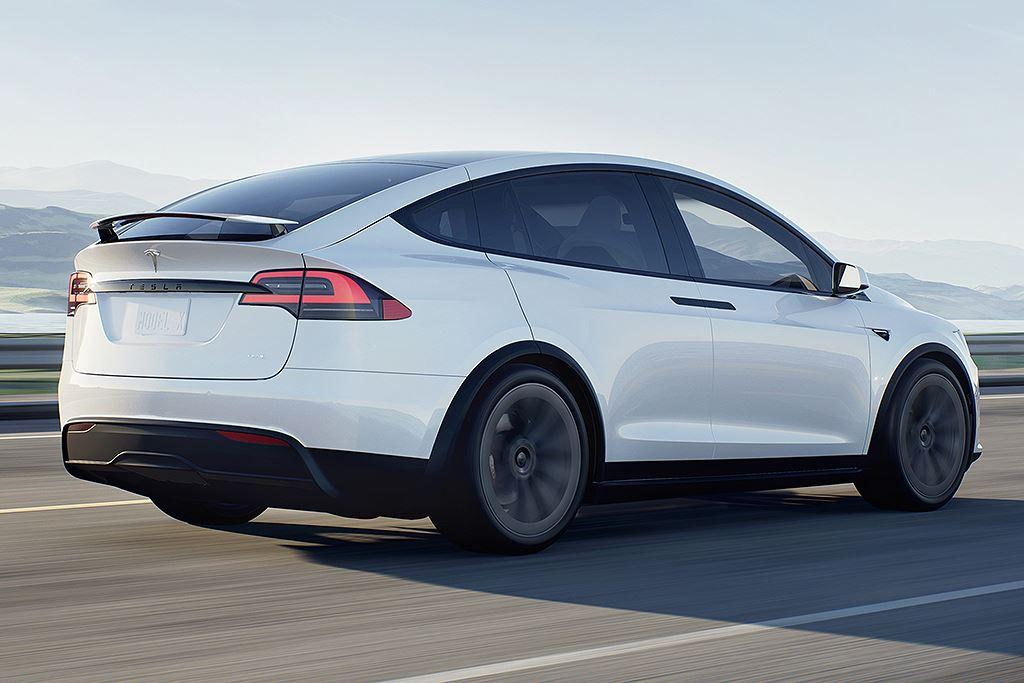
With gull-wing doors and a massive glass roof, there’s no hiding the fact that the Tesla Model X is a luxury SUV. In 2024, the Model X has seen multiple price cuts, and now starts around $80,000.
Price: $79,990 to $120,000+
Range: 351 miles
Charging (Public fast charger): can add 200 miles in 15 minutes
Passenger volume: N/A (three rows)
Cargo volume behind second row: 42.5 cubic feet
Total cargo volume: 92.3 cubic feet
Safety rating: 5 stars from Euro NCAP
See Tesla Model X new and used listings.
These electric crossover SUVs are the highest-rated, most-loved EVs for families today. Although they lack a third row, they’re plenty big enough for most families of four. Spaciousness, pricing, range and charging speeds vary from one electric model to another. We’ve also included NHTSA safety ratings if they’re available.

The Model Y is the best-selling electric vehicle in America. Model Y prices have fallen 20% from 2022’s highs. It’s now possible to buy a Model Y for well below $50,000 with the point-of-sale EV tax credit. Although it’s known for autonomous driving, the full capability (known as FSD) is a $15,000 package.
Price: $49,990 to $74,990
Range: 279 to 330 miles
Charging (Public fast charger): can add 200 miles in 15 minutes
Passenger volume: 106 cubic feet
Cargo volume behind second row: 26.6 cubic feet
Total cargo volume: 72 cubic feet
NHTSA safety rating: 5 stars
See Model Y new and used listings.
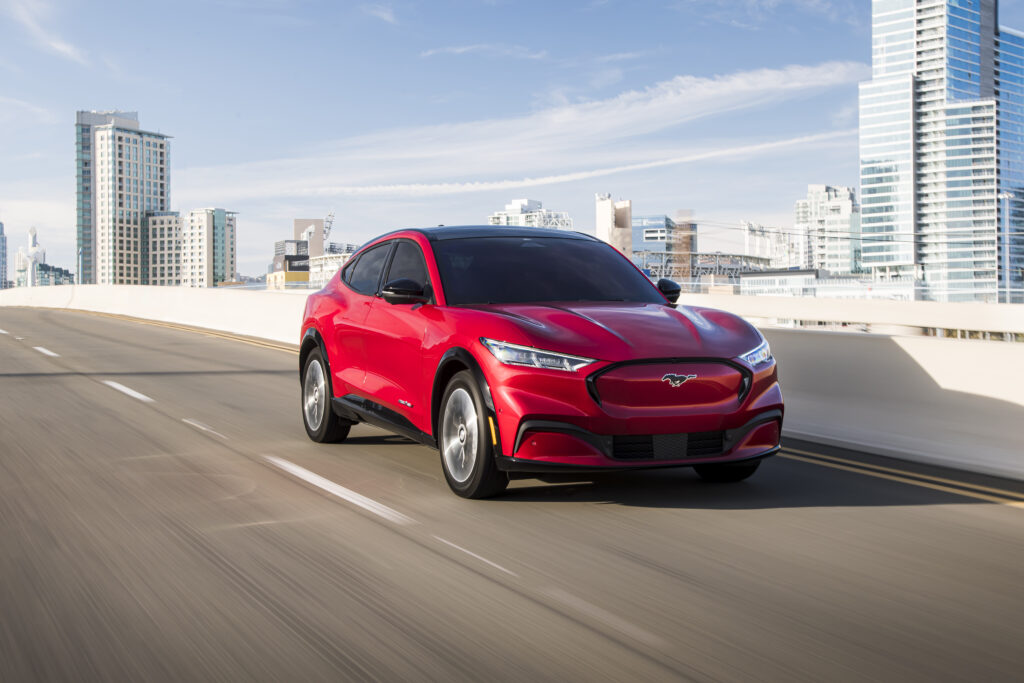
Ford’s first serious EV is very popular among small families and speed freaks alike. If the Mustang brand has a special place in your heart, this just might be the EV for you.
Price: $45,995 to $63,575+
Range: 224 to 312 miles of range
Charging (Public fast charger): can add 120 miles in 20 minutes
Passenger volume: 104.5 cubic feet
Cargo volume behind second row: 29.7 cubic feet
Total cargo volume: 59.7 cubic feet
Safety rating: IIHS Top Safety Pick
See Mustang Mach-E new and used listings.

I can confidently say that the IONIQ 5 is a great family car, and that’s because my wife and I haul our own kiddo around in this segment-bending electric crossover with hot hatch flavors. The IONIQ 5 has won many awards, including Car and Driver’s 2022 EV of the Year. It charges VERY fast, and that’s what I love most about the car.
Price: $40,925 to $57,400+
Range: 220 to 303 miles
Charging (Public fast charger): Adds 200 miles of range in 20 minutes
Passenger volume: 106.5 cubic feet
Cargo volume behind second row: 27.2 cubic feet
Total cargo volume: 59.3 cubic feet
Safety rating: Top Safety Pick Plus from IIHS
See Hyundai IONIQ 5 new and used listings.

The spaceship-styled EV6 is Kia’s version of the Hyundai IONIQ 5, which shares the e-GMP electric powertrain. The Kia EV6 has slightly less passenger and cargo space than the Hyundai, but it’s better range and equally fast charging make it an obvious feature on this list of best electric cars for families.
One thing to bear in mind: most EVs, including the EV6 and IONIQ 5, have a flat floor, meaning that there’s a bit more interior space than it would appear. The best thing you can do is check one out in person!
Price: $43,920 to $61,600+
Range: 274 to 310 miles
Charging (Public fast charger): Adds 200 miles of range in 20 minutes
Passenger volume: 103 cubic feet
Cargo volume behind second row: 24.4 cubic feet
Total cargo volume: 50.2 cubic feet
Safety rating: In Europe, the EV6 earned 5 stars
See Kia EV6 new and used listings.
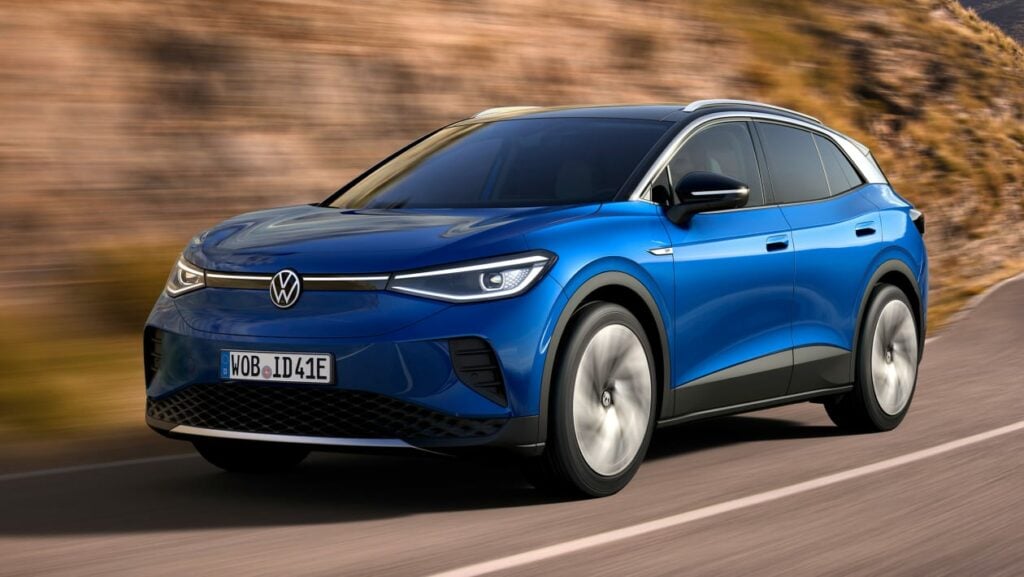
We have great news for those in search of an affordable and capable EV that qualifies for the federal tax credit. The ID.4 is now made in Tennessee at Volkswagen’s Chattanooga plant! The newest American-made EV is equipped with decent range, okay charging, and a comfortable interior that’s designed for families. However, don’t expect Tesla-level infotainment. The ID.4 is best for those who are content with the simpler things in life.
Charging speeds are merely okay, but the 2024 model year gets a decent improvement.
Price: $38,790 to $55,000
Range: 208 to 275 miles
Charging (Public fast charger): Adds up to 190 miles of range in 30 minutes
Passenger volume: 99.9 cubic feet
Cargo volume behind second row: 30.3 cubic feet
Total cargo volume: 64.2 cubic feet
Safety rating: Top Safety Pick Plus
See Volkswagen ID.4 new and used listings.
The Inflation Reduction Act eliminated the original EV tax credit and replaced it with a completely revised tax credit. For vehicles that qualify, up to $7,500 in tax credits are available. However, the incentive is based on battery sourcing, which will be determined by the automakers. Income limits restrict buyer eligibility, too. See the full details on qualifying models here.
There’s also a used EV tax credit for the first time, but a price cap of $25,000 eliminates every single family EV on this list.
Generous state and local incentives may make the switch to an EV much more affordable, depending on where you live. See the most generous state-level EV incentives, and check with the DSIRE clean energy incentive database to find more incentives for your specific location.
Which family-size electric car are you considering? Let us know in the comments, or better yet join the conversation at our CarEdge Community forum.
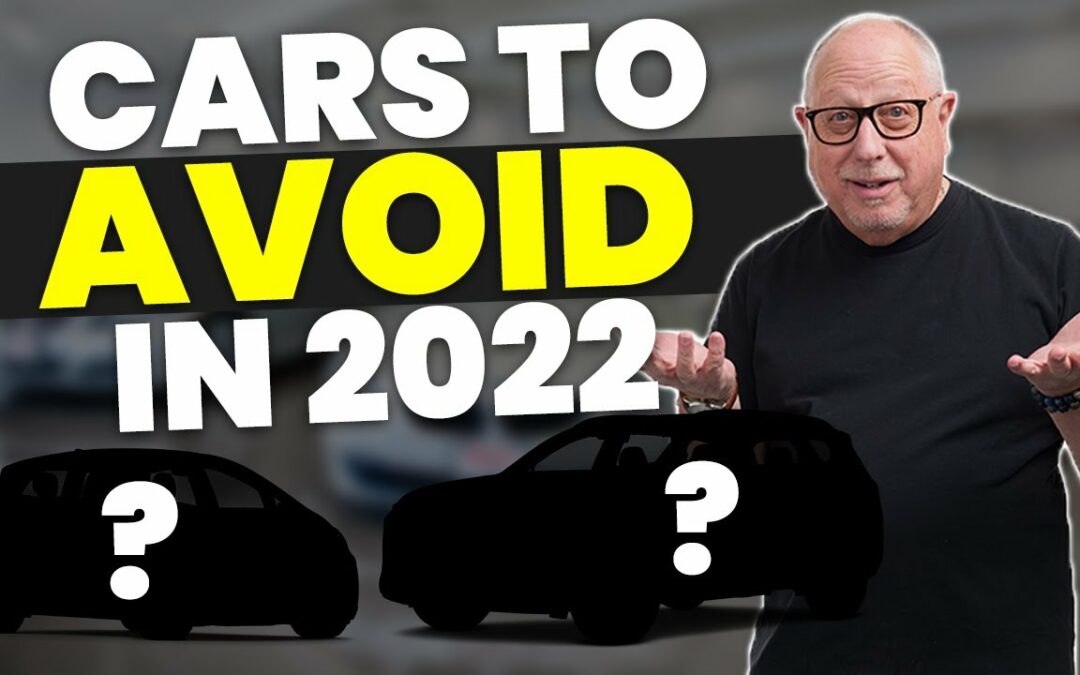
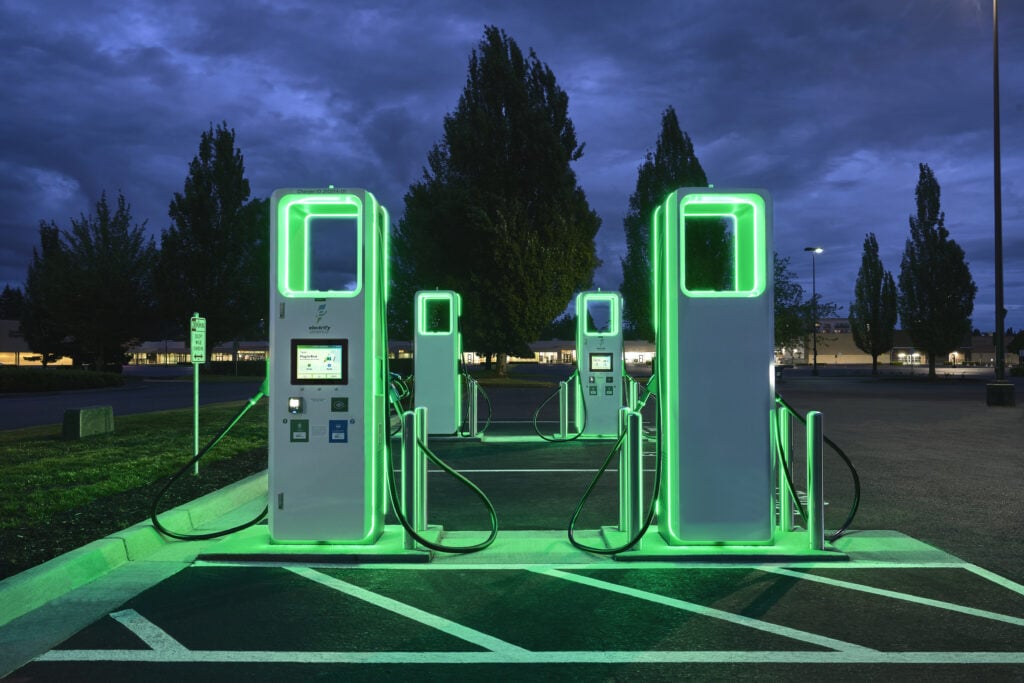
At a time when the average transaction price for a new vehicle is inching closer to $50,000, getting your money’s worth matters more than ever. Electric vehicles are popular, but they’re expensive. Most importantly, not all EVs are equal in terms of range, charging speed, and overall value for the money. These are the worst deals for a new electric car in 2022, plus some better alternatives on the market today.
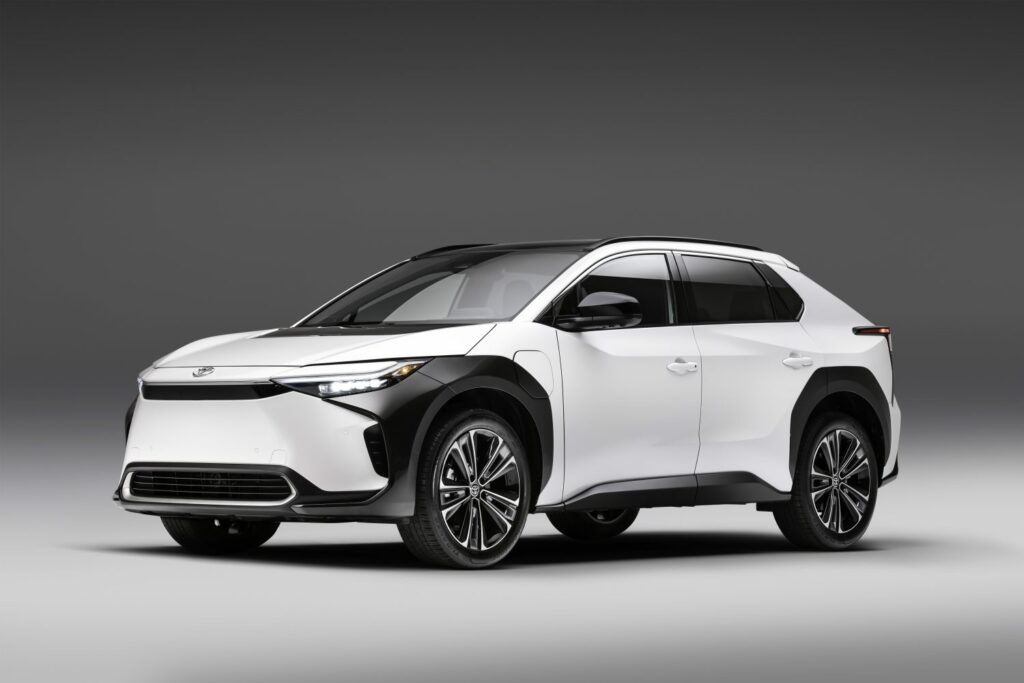
Long the authority when it comes to hybrid powertrains, the world waited with great anticipation for the first all-electric Toyota. The automaker that brought us the legendary Prius collaborated with Subaru to engineer the 2023 Toyota bZ4X, and its sibling the Subaru Solterra (more on that below). The result is puzzling. At a time when Hyundai, General Motors and of course Tesla are bringing cars to market with fast-charging times under 30 minutes, Toyota jumps into the game with an electric crossover that takes a whole hour to charge under optimal conditions.
Okay, so it charges slowly. What about the Toyota bZ4X’s range? The front-wheel drive bZ4X is rated for 242 miles with the Limited trim, and 252 miles on the XLE. Upgrade to dual-motor all-wheel drive, and range suffers. The AWD Toyota bZ4X is EPA-rated for 222 miles on the Limited, and 228 miles with lower trims.
Pricing starts at $43,215 before incentives, and tops out at $49,995 for the bZ4X Limited all-wheel drive.
Here’s a summary of what the 2023 Toyota bZ4X offers:
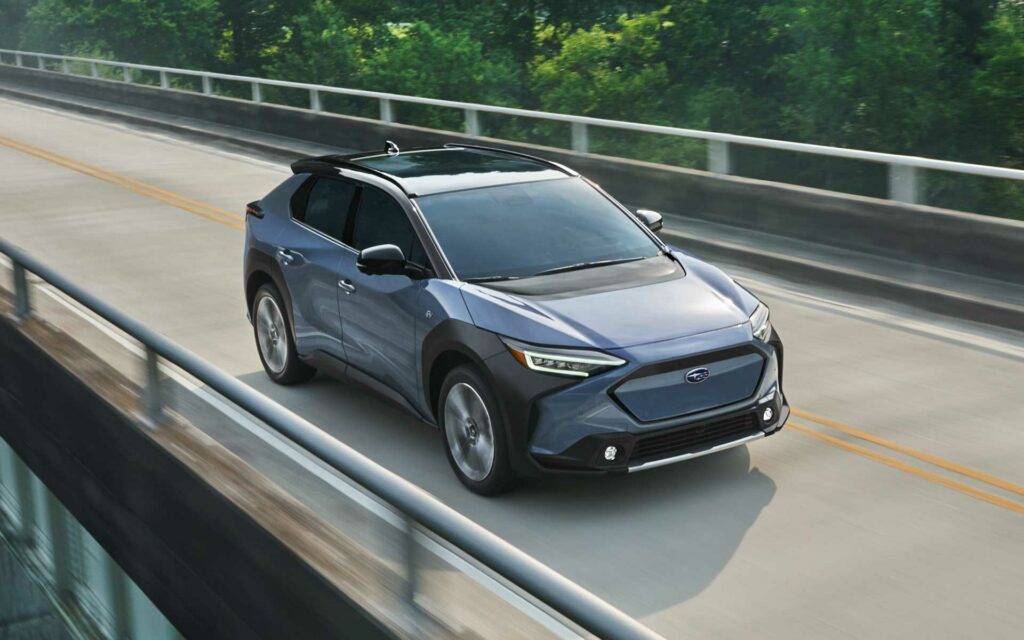
I get why Subaru drivers love their cars. I’m a fan of the outdoorsy, all-terrain capable vehicles at an attainable price. Now that Subaru’s first electric vehicle has arrived, I’m heartbroken. It’s not a compelling EV, especially compared to the competition as a 2023 model.
Toyota’s new electric platform paired with all-wheel drive and the Subaru badge will set you back at least $46,220, and the Solterra Touring’s MSRP is a lofty $53,220. Range isn’t anything to brag about. In fact, it just might cause range anxiety from day one.
2023 Subaru Solterra
Perhaps if you don’t travel too far off the beaten path, the 2023 Subaru Solterra could be right for you. But that defeats the purpose of having a Subaru, doesn’t it?
Here’s our full review of the Subaru Solterra.
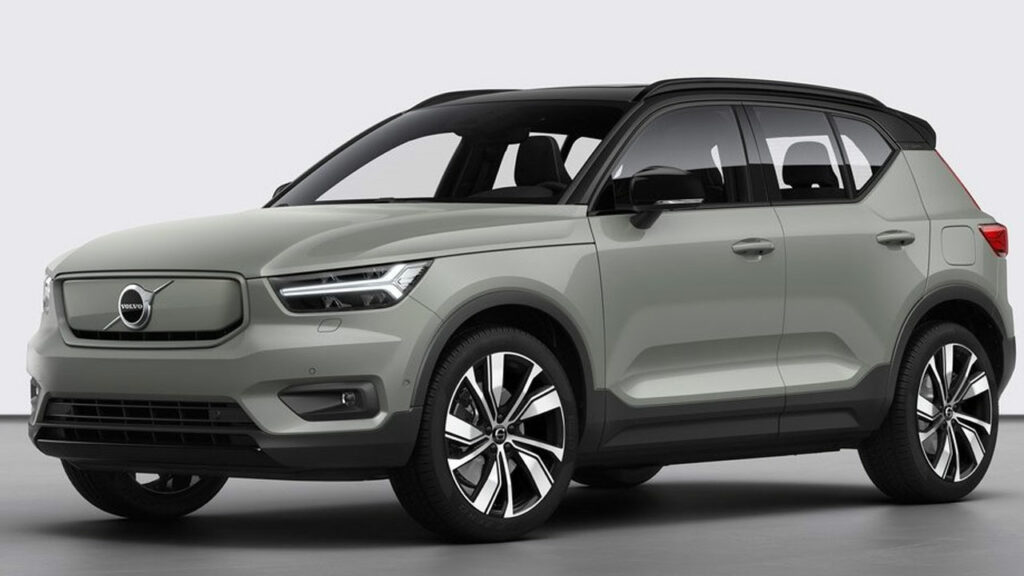
When it comes down to the specs, looks and driving experience, the 2022 Volvo XC40 Recharge is not a bad car. Many owners love its zippy performance and Scandinavian looks. What’s not to like? The price paired with the range. The XC40 Recharge is not an affordable EV. With a starting price of $51,700 and most trim options ending up around $60,000, this Volvo’s price approaches that of its competitor: the Tesla Model Y.
Here’s what to expect from the 2022 Volvo XC40 Recharge:

The I-PACE was one of the first electric vehicles to earn mainstream popularity in North America. When it arrived in 2018, range and charging capabilities were on-par with the best. What’s the problem then? Jaguar has not invested in powertrain upgrades for the I-PACE, and it has consequently fallen out of favor among EV buyers.
The 2022 Jaguar I-PACE starts at an MSRP of $71,200, plus destination and fees. What do you get for such a lofty price, other than the Jaguar brand?
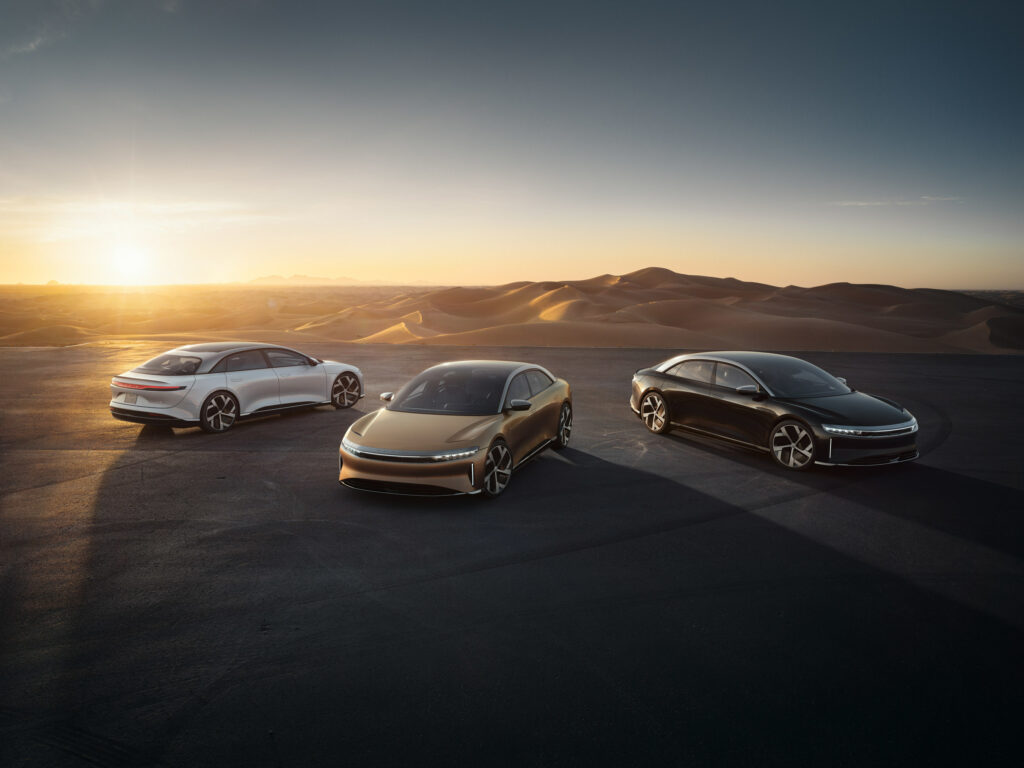
Seasoned electric vehicle enthusiasts may be surprised to see the Lucid Air on this list of overpriced EVs, but hear me out. Although the newly-released 2022 Lucid Air starts at $78,900, you’d be hard pressed to find one in 2022 for under $150,000. Lucid’s design is sharp and sleek, and it’s certainly worthy of a luxury price tag. But if you want all the bells and whistles seen in Lucid’s commercials, brace yourself for sticker shock. The fully-loaded Lucid Air Dream Edition costs $169,900.
Within the electric luxury sedan segment, the Lucid Air makes the Tesla Model S look like a bargain. Although the base ‘Air Pure’ starts at $77,400, the Air Pure won’t be available until late 2022 at the earliest. If you’re looking for luxury, a glass roof, and insane performance, the Tesla Model S offers that and more at $99,990. Even with the federal EV tax credit factored in, the Lucid Air Dream Edition costs over $50,000 more, and stepping down to the Lucid Air Grand Touring at $139,900 will still cost 30% more than the Tesla.
At least you get some impressive specs with the Lucid Air, but the competition offers more value and a longer track record of build quality and electric powertrain performance. Still, the Lucid Air is the range king of all electric cars for now.
Here’s our full review of the Lucid Air.
At CarEdge, we’re all about solutions. If you’re on the market for one of these overpriced electric cars, here are some more compelling EVs to take for a test drive.
2022 Hyundai IONIQ 5
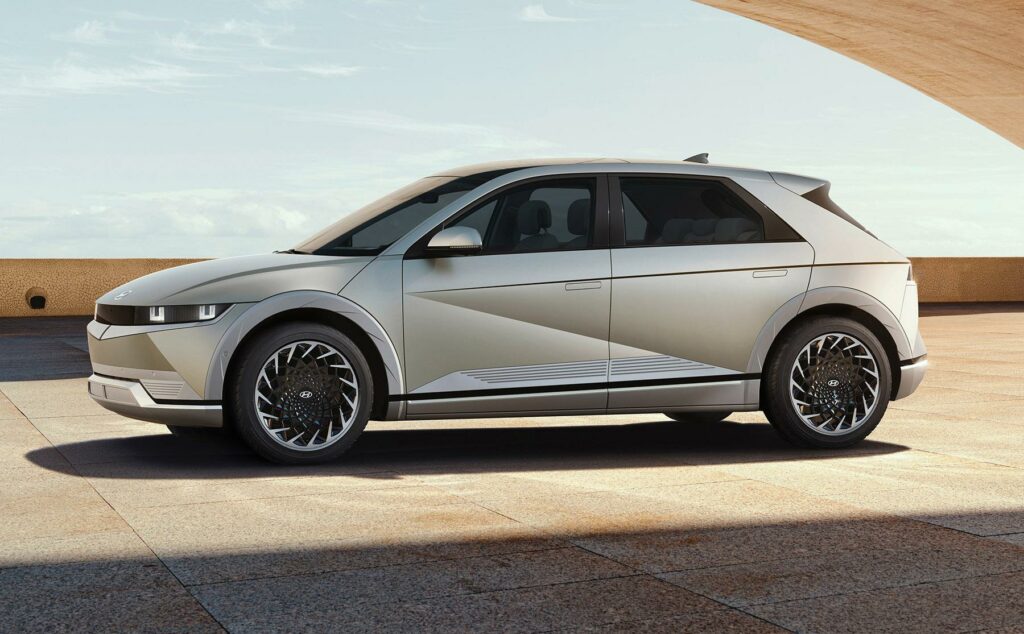
Why? For less than $50,000, this retro-styled EV sports a roomy cabin, decent range, and ultra-fast charging powered by the new e-GMP platform’s 800-Volt engineering.
Price: $44,875 – $56,200
Range: 256 to 303 miles
Charge time: Adds 180 – 200 miles of range in 18 minutes (230 kW charge speeds)
Availability: Available now. Check CarEdge Car Dealer Reviews to find the best dealers to work with.
Does it qualify for the federal EV tax credit? Yes!
Learn more with our in-depth review of the IONIQ 5.
2022 Kia EV6

Why? If you love the Hyundai IONIQ 5’s specs and pricing, but aren’t a fan of the looks, chances are the Kia EV6 will be right up your alley. This sporty electric crossover is also powered by the new e-GMP platform’s 800-Volt architecture for the fastest charging available.
Price: $40,900 – $55,900
Range: 274 to 310 miles
Charge time: Adds 190 – 210 miles of range in 18 minutes (230 kW charge speeds)
Availability: Available now. Check CarEdge Car Dealer Reviews to find the best dealers to work with.
Does it qualify for the federal EV tax credit? Yes!
Learn more with our in-depth review of the EV6.
2022 Ford Mustang Mach-E

Why? You’d be hard-pressed to find a dissatisfied Mustang Mach-E owner. This EV is on a much more sport-oriented suspension, with a family-friendly modern interior.
Price: $43,895 – $61,995
Range: 224 to 314 miles
Charge time: Charging improvement incoming via over-the-air update, but for now, the Mustang Mach-E adds 59 miles of range in ten minutes, and charging from 10%-80% takes about 45 minutes.
Availability: Available now. Check CarEdge Car Dealer Reviews to find the best dealers to work with.
Does it qualify for the federal EV tax credit? Yes!
Learn more with our in-depth review of the Mustang Mach-E.
2022 Tesla Model Y
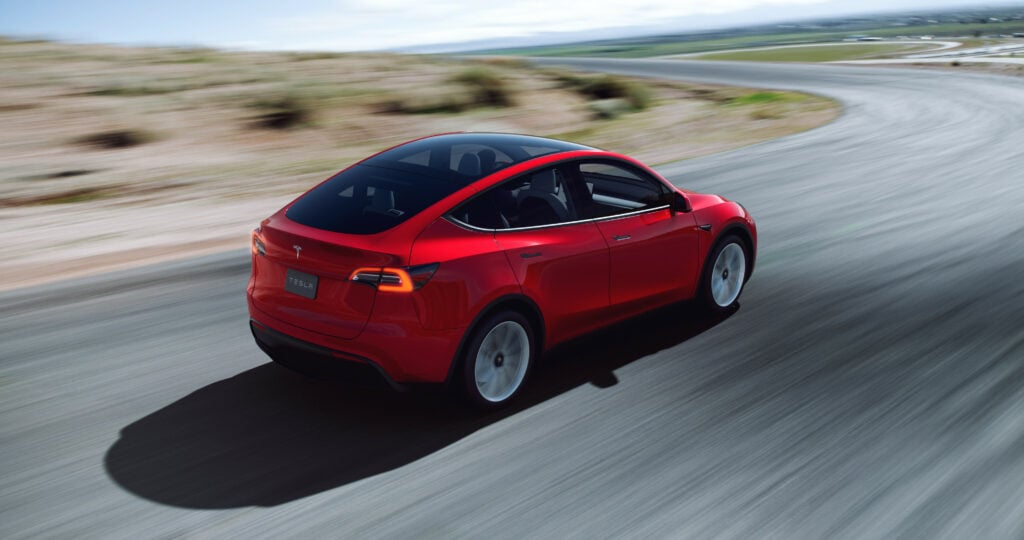
Why? This is still the best electric crossover on the market. Great efficiency, range and charging speeds paired with Tesla’s superior over-the-air update capabilities makes this EV the EV sales leader. If only it still qualified for the federal tax credit!
Price: $62,990 – $82,990
Range: 303 – 330 miles
Charge time: Add 200 miles of range in 15 minutes at over 1,200 Tesla Supercharger locations in North America.
Availability: Available now via Tesla’s direct-to-consumer sales, or pre-owned on CarEdge Car Search.
Does it qualify for the federal EV tax credit? No, not unless the tax credit is revised by congress.
Learn more with our in-depth review of the Model Y.
2022 Volkswagen ID.4
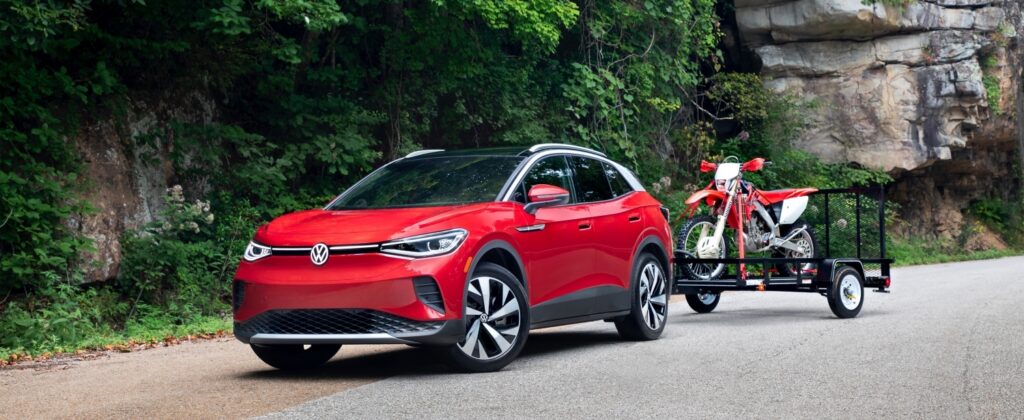
Why? If you can find one at MSRP, the ID.4 is a solid choice for those opting for a more leisurely, less sporty EV. However, it has lost much of its appeal ever since the Hyundai and Kia electric crossovers hit the market with much faster charging.
Price: $41,230 – $52,500
Range: 249 – 260 miles
Charge time: Add up to 190 miles of range in 40 minutes
Availability: Available now. Check CarEdge Car Dealer Reviews to find the best dealers to work with.
Does it qualify for the federal EV tax credit? Yes!
Learn more with our in-depth review of the ID.4.
2022 Tesla Model S
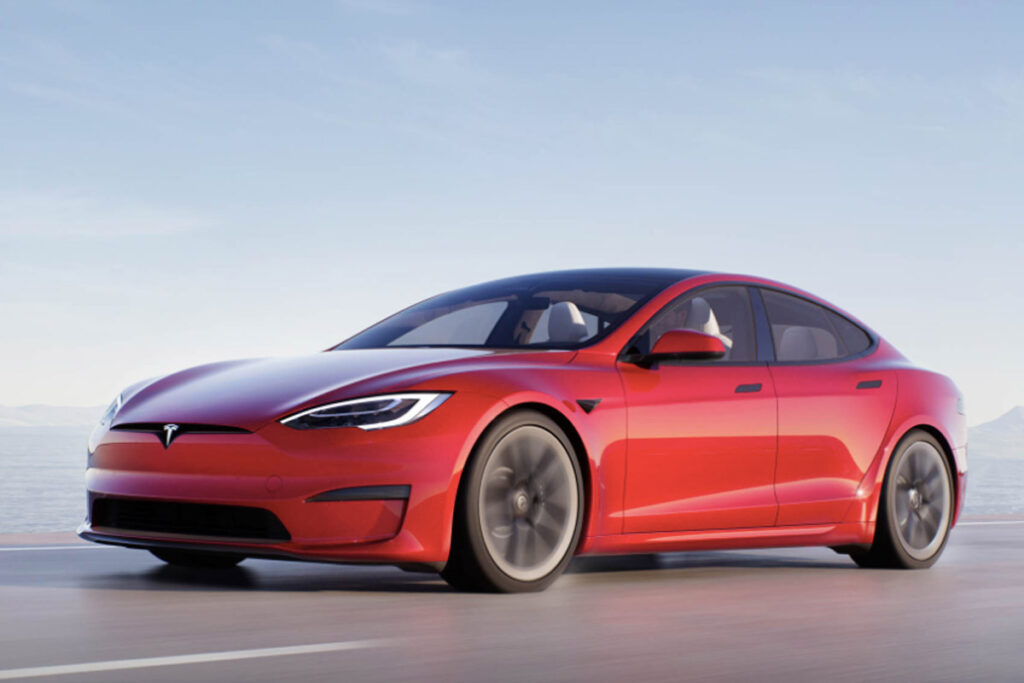
Why? Tesla’s first mass-produced model has matured into the gold standard among luxury EVs. It’s pricey, but sky-high resale value and frequent OTA updates make this Tesla a smart choice for those in the market for something larger than the more popular Model 3.
Price: $99,990 – $156,990
Range: 348 – 405 miles
Charge time: Add up to 200 miles of range in 15 minutes
Availability: Available now via Tesla’s direct-to-consumer sales, or pre-owned on CarEdge Car Search.
Does it qualify for the federal EV tax credit? No, not unless the tax credit is revised by congress.
2022 Mercedes-Benz EQS
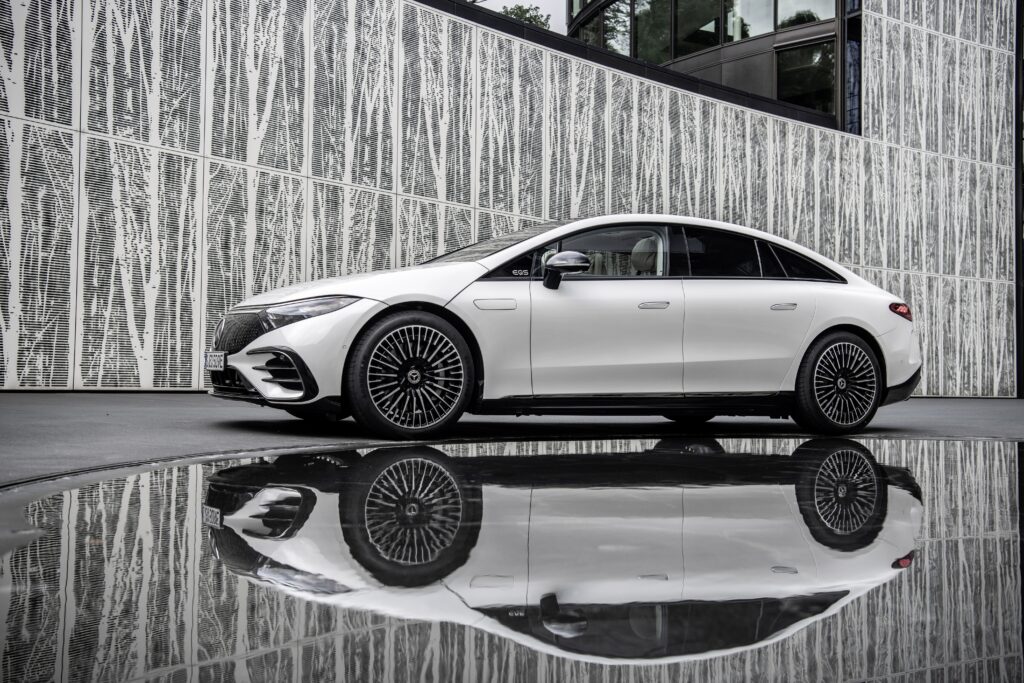
Why? The first dedicated electric vehicle from Mercedes to make it to North America is something to behold. It doesn’t have the Tesla Supercharger network, but the interior is luxury on another level.
Price: $102,310 – $108,510
Range: 350 miles
Charge time: Add up to 200 miles of range in 20 minutes
Availability: Available now. Check CarEdge Car Dealer Reviews to find the best dealers to work with.
Does it qualify for the federal EV tax credit? Yes!
Learn more with our in-depth review of the EQS.
Do you agree with this analysis, or did we miss the mark? Please, let us know in the comments below, or join us at the CarEdge Community to talk cars, deals and more. Our CarEdge auto experts are ready to take the headache out of your car buying experience.

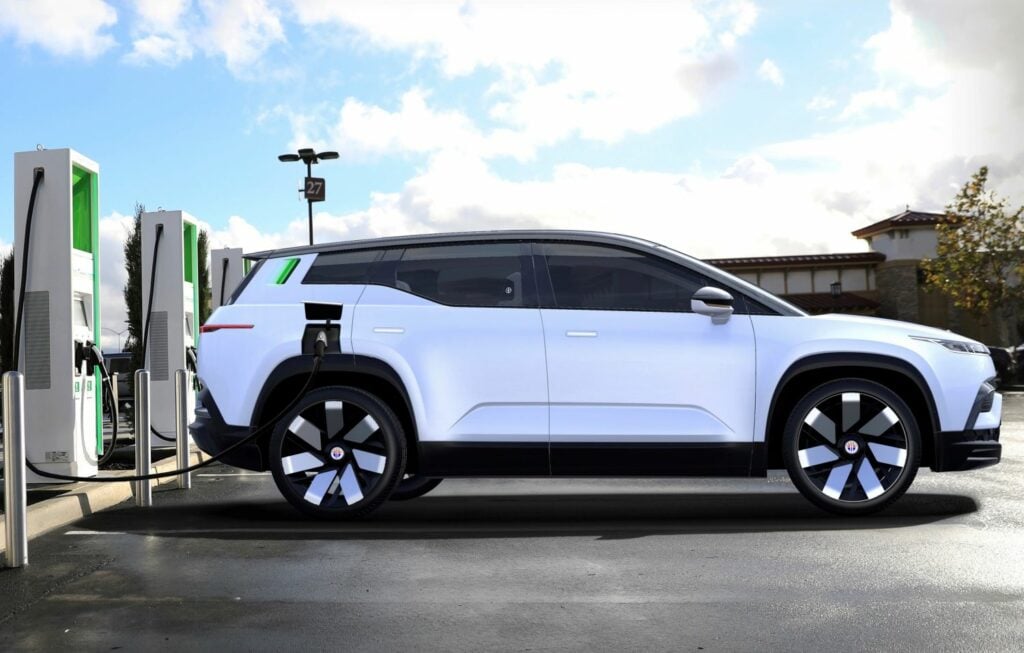
Sadly, these days it’s not possible to leisurely head to a dealership and pick out the perfect vehicle. Inventory remains at record lows, and supply chain shortages are going to get worse before they get better. The electric lifestyle is an adjustment for most first-time EV buyers, and preparation eases the transition considerably. You don’t want your new car honeymoon to be ruined by missed opportunities or misconceptions. Here are five reasons why you should plan ahead before making your first electric car purchase.
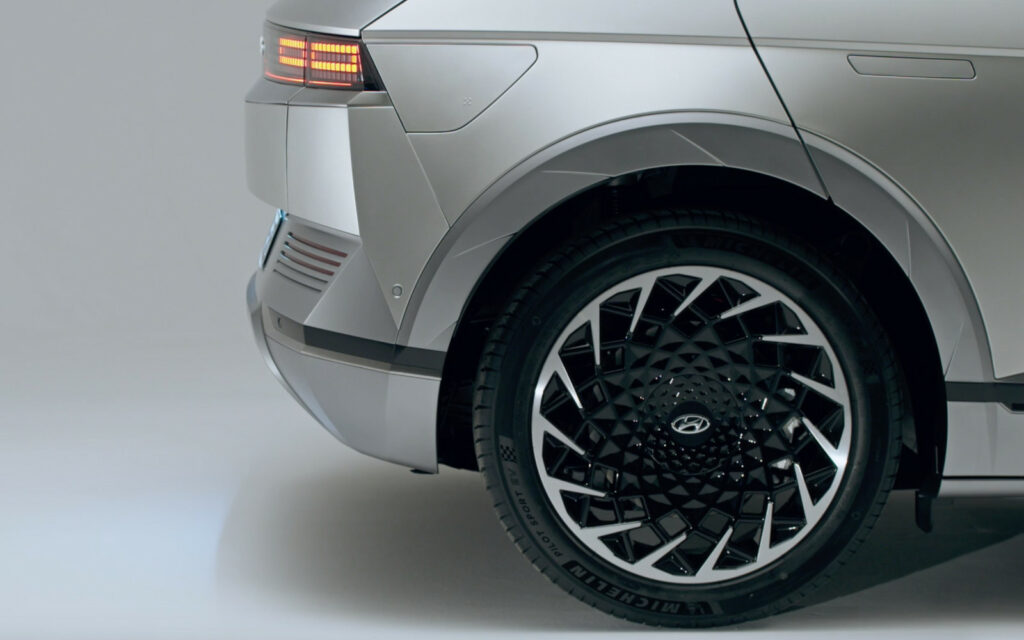
Inventory is slim to none for all new autos, and electric vehicles have been hit especially hard by the supply shortages of 2021 and 2022. EVs are the product of truly global supply chains, and that makes them particularly vulnerable to disruptions. EV leader Tesla has so far avoided the worst of the supply shortages, however high demand has new orders seeing delivery dates over 8 months away.
Tesla isn’t the only automaker seeing serious delays. The popular Volkswagen ID.4, Ford Mustang Mach-E and Hyundai IONIQ 5 are all hard to find on a dealer lot nationwide. Data from Cox Automotive shows that day’s supply, the preferred industry metric for new car availability, is dismal for several electric vehicle makers.
Here’s the day’s supply for popular brands that sell electric cars in America. Tesla, Rivian and Lucid sell directly to consumers, so there is no available data for their models.
As bad as these supply estimates are, many shoppers note that many dealers have just a few cars on the lot. Don’t expect to find exactly what you want at your local dealership.
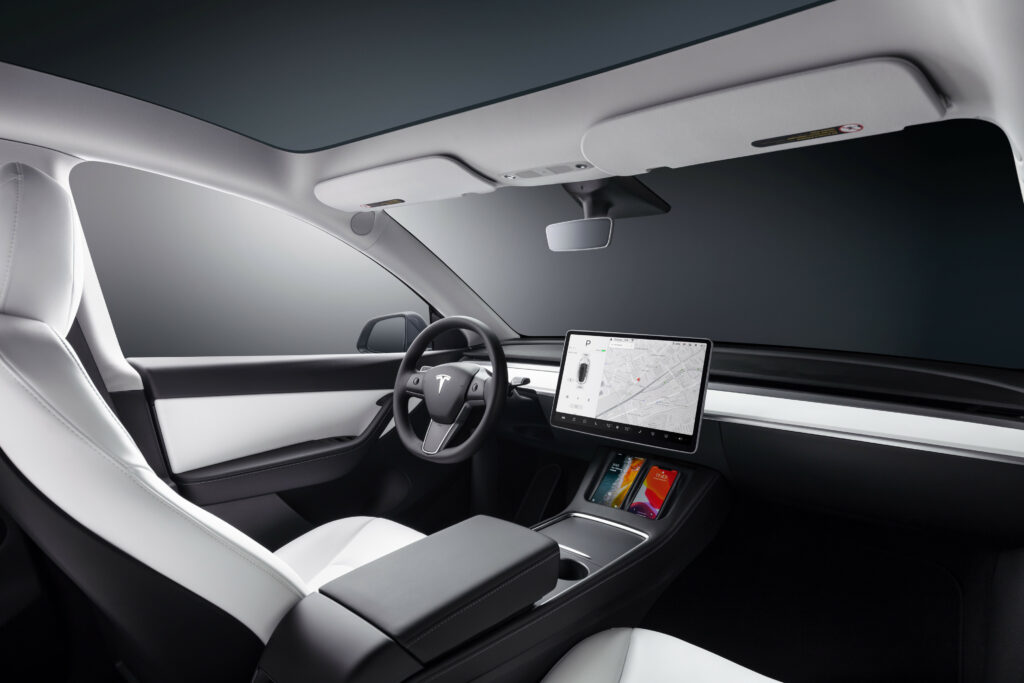
If you’re eager to get yourself into a new car as soon as possible, check out CarEdge Car Search to locate electric cars around the country. Beware misleading postings from dealerships. I’ve found that about half of dealer postings are actually misrepresenting cars that are already spoken for.
It’s not fun, but it’s worth it to call around. Soon, you may find yourself forgetting which dealers you’ve contacted, so it’s wise to keep a spreadsheet of who you’ve reached out to, and their inventory situation. While you’re at it, keep track of what their dealer markups are for EVs. Some dealers are taking advantage of the situation and charging $5,000, $10,000 or even $20,000 over MSRP.
If you don’t find what you’re looking for at a competitive price point, most automakers let you place an order for their popular EVs. Sometimes, you’ll have to order through a dealership, so keep that in mind if you don’t see a way to place an order on the automaker’s website. For example, the Hyundai IONIQ 5 and Cadillac Lyriq can only be ordered through a participating dealer.
If you have your eyes set on a Tesla, placing an order is simple. In fact, it takes just a few minutes (but requires a non-refundable deposit). However, demand far exceeds supply for Tesla models. Expect to wait 6-10 months for a Model Y.
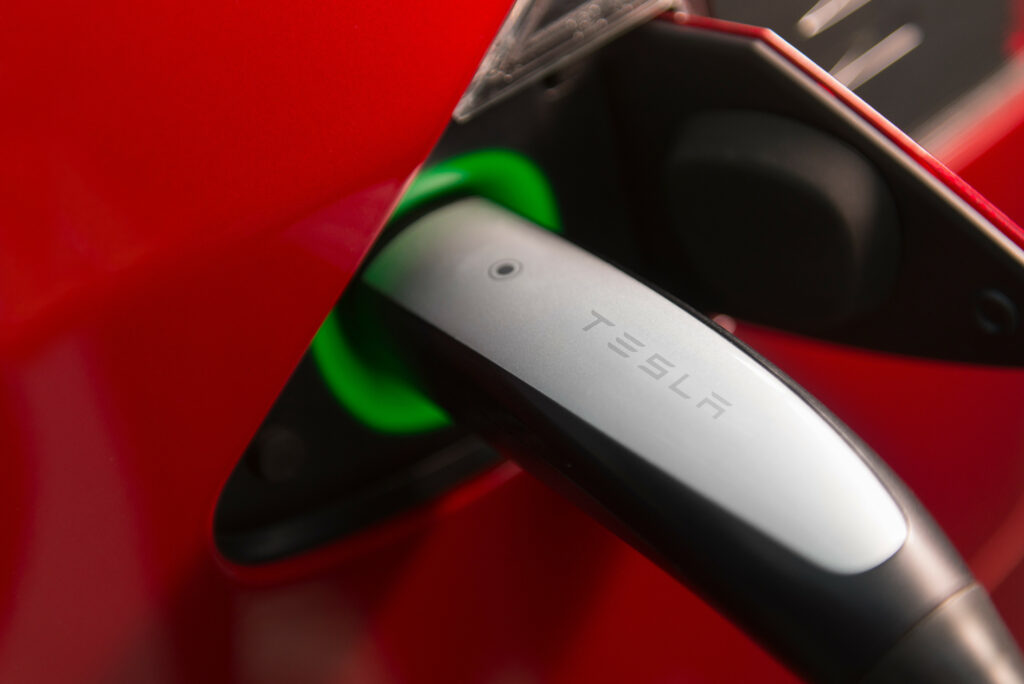
If you drive less than 30 miles a day and live near public fast chargers, don’t sweat it. However, long distance commuters and rural EV owners will be glad they thought about how to meet their charging needs.
Over 80% of electric car charging is done at home at affordable residential electricity rates, costing less than $15 for a full charge. If you skip any special home charger installation, plugging in to a typical wall socket will add two to four miles of range per hour. Over 12 hours (at night, for example), a standard wall outlet will add about 25 to 50 miles of range. However, frequent travelers will get tired of the slow charging speeds possible with basic 110-volt wall outlets.
For those who regularly drive more than 50 miles each day, it will likely be worth the investment to get a level 2 home charger installed. A level 2 charger increases power supply to 240 volts, and adds about 20 to 40 miles of range per hour. Unless you’re lucky enough to already have a 240-volt dryer outlet in your garage, installing a level 2 charger at home can cost between $700 and $1500, depending on labor costs and the condition of existing electrical infrastructure in the home.
We’ve covered all you need to know about how much it costs to charge an electric car in our CarEdge guide to charging.
At some point, a public DC fast charger will be essential for travels. If you purchase an electric vehicle with over 200 miles of range, getting to one shouldn’t be a problem. However, there continues to be wide variation in charge times, and that will make or break the EV ownership experience for frequent travelers.
The Hyundai IONIQ 5, Kia EV6 and Tesla models can all add about 200 miles of driving range in about 20 minutes. However, the 2023 Subaru Solterra EV takes 56 minutes to add the same range. Pay attention to the details, and consider how each electric model would fit into your lifestyle and needs.
For many households, tax liability fluctuates from year to year. If you know when a particularly large tax bill will be due, it might be a great time to buy an electric vehicle. The current federal electric vehicle tax credit is worth up to $7,500, however tax filers who owe at least as much in annual tax liability will get the full benefit from the credit. For example, a family who has a federal tax liability of $5,500 will only be able to claim $5,500 of the EV tax credit. That’s why it makes sense to purchase an EV when tax liability is expected to be at least $7,500.
Plug-in hybrids qualify for between $2,500 and $7,500, depending on battery size.
The credit (non-refundable) remains in effect for all automakers who have yet to reach the law’s 200,000-vehicle limit. Tesla and General Motors have surpassed the limit, so buyers of the Bolt, Silverado EV, and Tesla models won’t benefit from this generous incentive unless Congress overhauls the law. Revisions to the EV tax credit are possible in 2022. Stay up to date with the latest EV tax credit developments here.
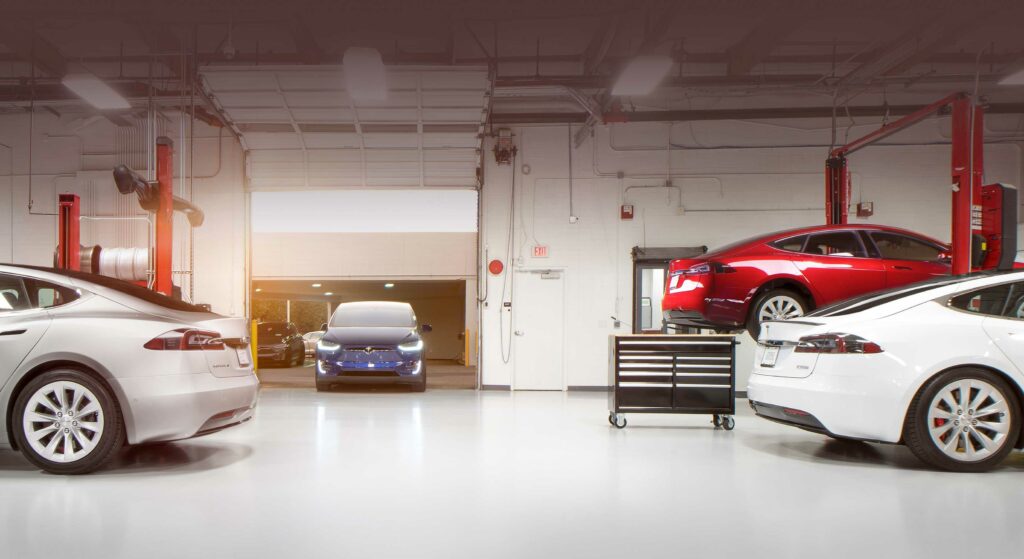
If you live anywhere near a major metropolitan area, especially along the coasts, you’ve got nothing to worry about. The rest of us need to bear in mind the limits of EV newcomers like Rivian, Lucid and Fisker when it comes to serviceability. Tesla now has 150 service centers across the country, but a few states remain without a Tesla service center. Fisker’s affordable Ocean electric SUV is loaded with impressive specs, however service centers will be few and far between for years to come.
This is where the strength of legacy automakers really stands out. A Tesla or Rivian service center will be hard to find in rural America, however legacy automakers have established dealer networks in every corner of the country.
Before you go out and buy an EV, have a plan for how and where you’ll get it serviced. Electric vehicles come with a great warranty, so you’ll definitely want a way to take advantage of it.
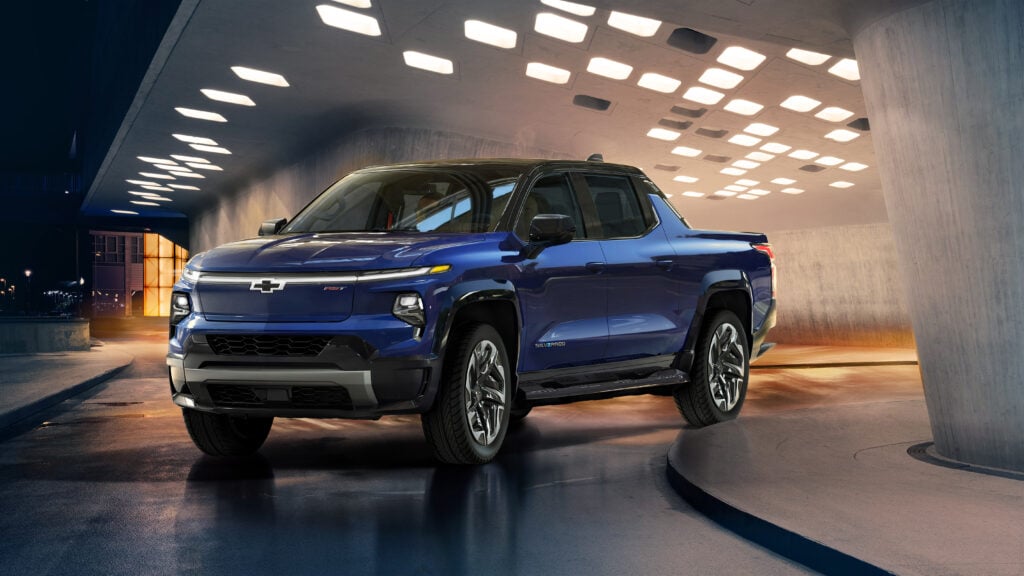
There’s always something bigger and better in the development pipeline. Newer models tout more range, faster charging and improved performance. On the other hand, prices tick upward with every added feature.
When does it make sense to hold out for the latest and greatest? It depends on what you value most, and which electric vehicle features you desire most. Looking to get more range out of a Volkswagen or Hyundai EV? 2023 models get a slight bump. Craving faster charging? Waiting a year might save you five minutes per charge. Don’t expect huge changes from one year to the next. Automakers have set the expectation for incremental improvements.
Ultimately, it will be up to you to decide what’s worth the wait, and when it makes sense to buy (or lease) an electric car.
Planning ahead for your electric car purchase not only has the potential to save you money, it also makes the transition to the electric lifestyle a lot easier. It’s important to consider your household’s unique needs and wants as you shop around. In 2022, EVs represent past, present and leading-edge technologies at a wide range of price points. Here at CarEdge, we’re keeping track of EV availability in 2022.
As always, CarEdge Electric is here to empower you with the knowledge to approach car ownership with confidence. Our weekly EV newsletter is full of helpful tips, the latest EV news, and new car reviews. Consider becoming a member for expert insights and one-on-one guidance throughout the car buying process.